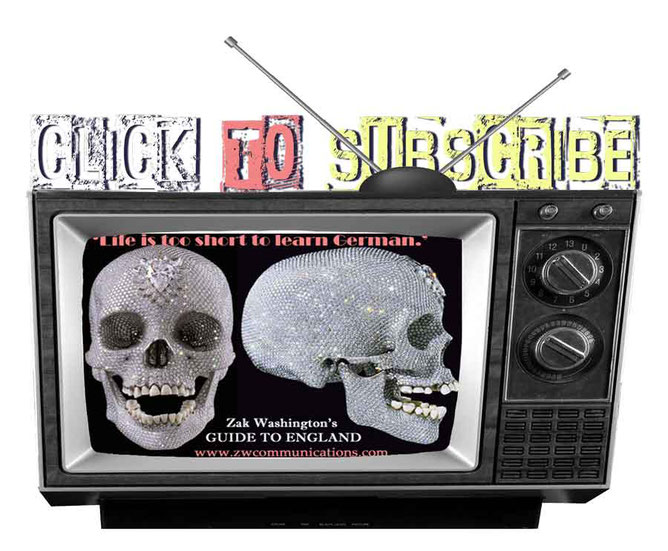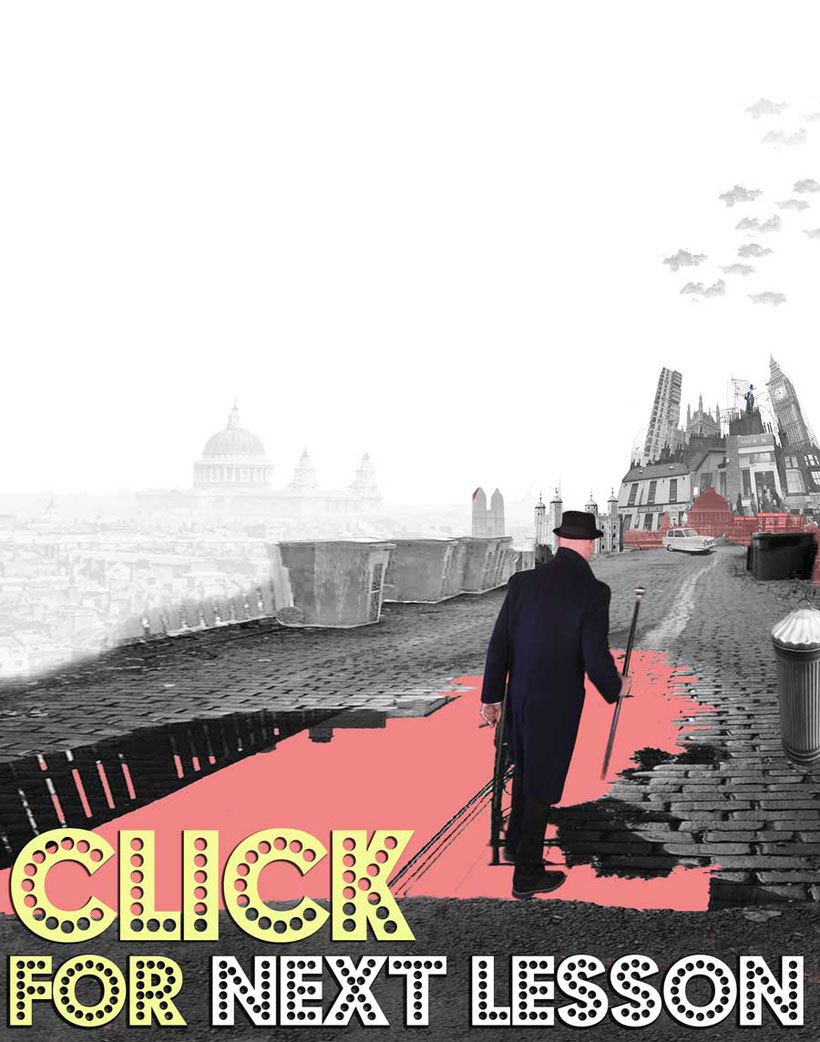LEARN real ENGLISH LANGUAGE & CULTURE - LESSON 11

FULL FREE NON-PROFIT, NON-CORPORATE AND NON-STATIST TEFL COURSE

Today's LESSON 11 is about how to use 'can' and 'could' and other modal verbs.
We will explain how to use verbs for possiblity, certainty, probability, ability, etc.
After we will explain how to ask permission.
Finally students will practice with communication activities, quizzes and games.

British culture: Vintage British Ford Anglia from the 1960s
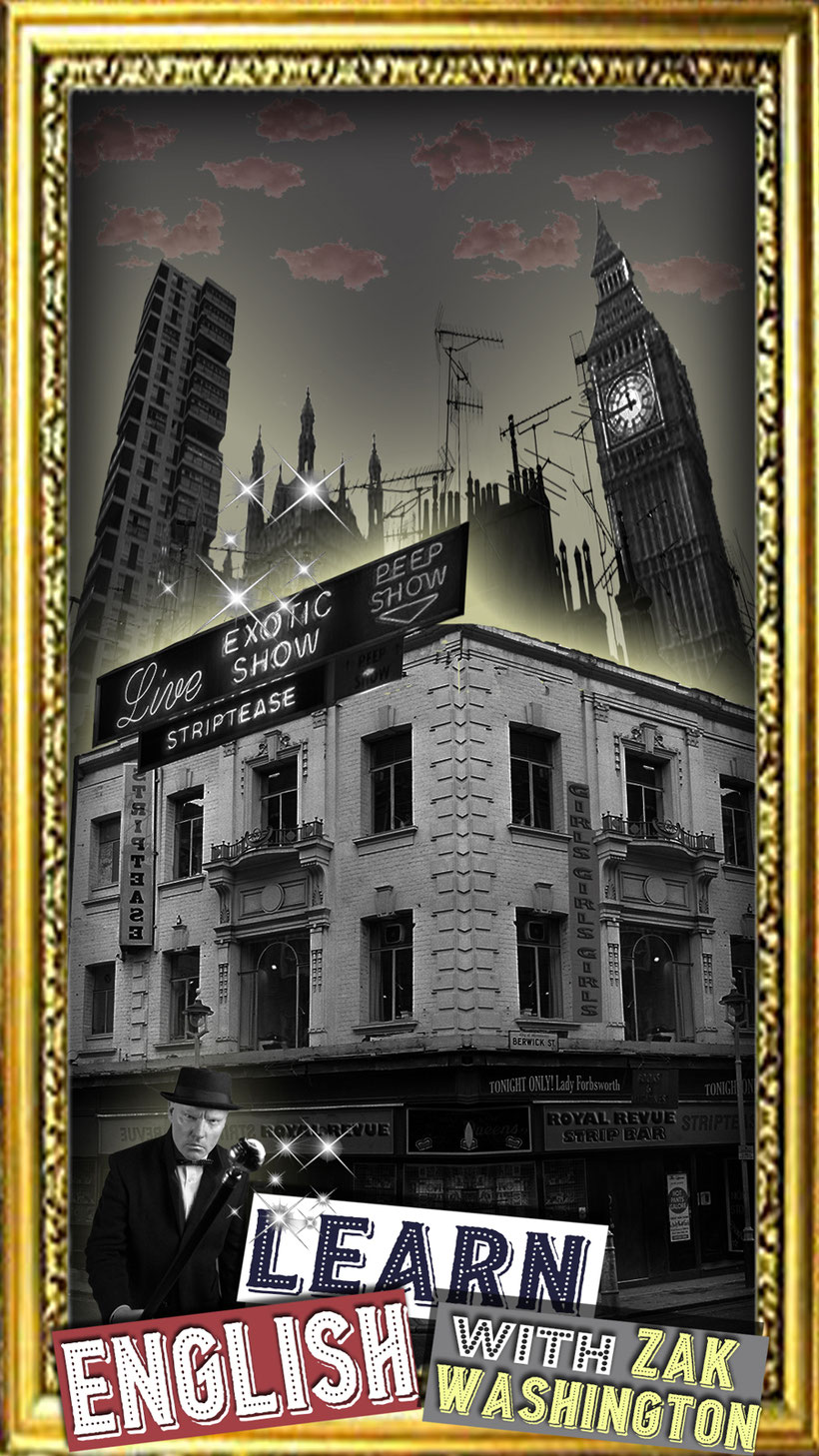

ZakWashington, the corrupt English teacher, is too lazy to work at the language school, so he is taking his group of students to visit a ‘cultural’ place of interest. Today we are going to…..
THE ROYAL REVUE BAR. SOHO.
(Well, actually we are still there. We haven’t gone home yet.)
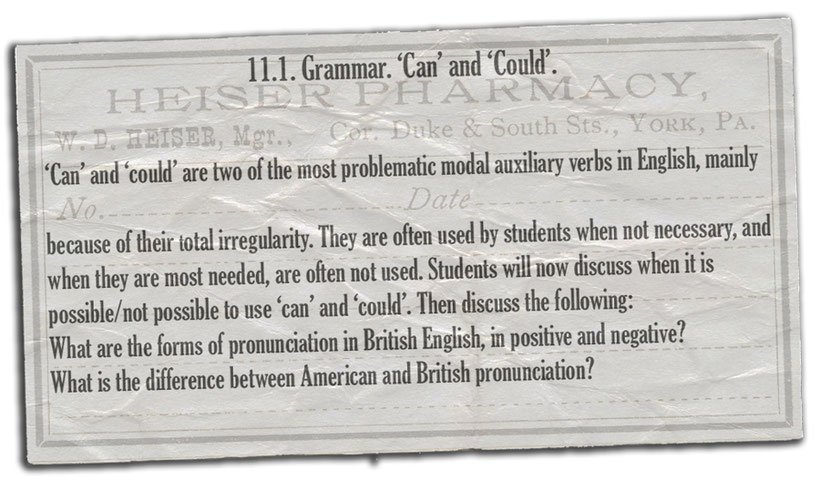
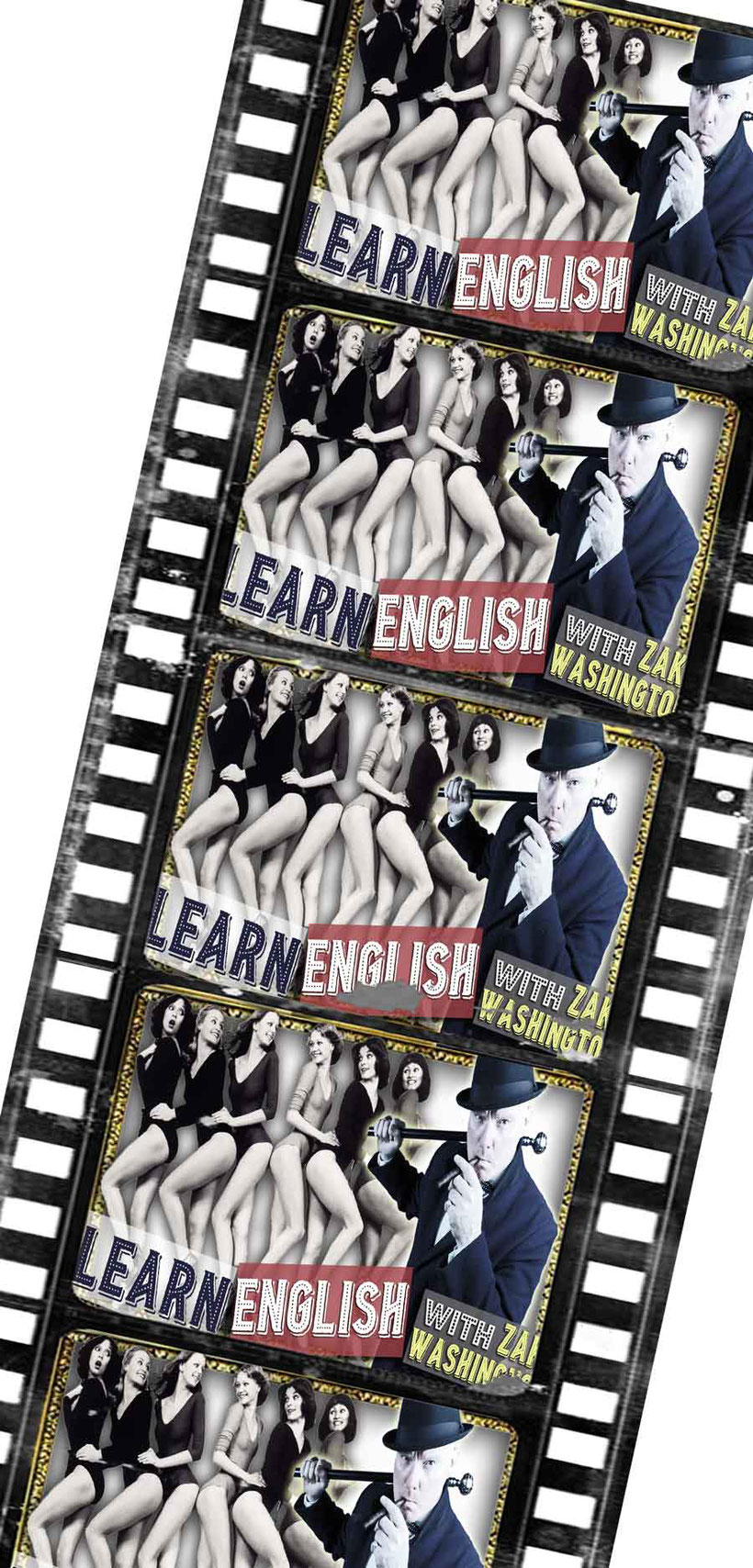
11.2 ENGLISH GRAMMAR EXERCISE COULD AND CAN
Match the following sentences with a definition.
Can you dance well after half a bottle of Tequila?
She could end up dancing with him.
You can go home with me.
Could I have the next dance?
Can I teach you to dance ?
OFFER
REQUEST
ABILITY
POSSIBILITY
PERMISSION
1. ‘Can’ for ability. What are the past, present, and future forms? Give examples.
2. ‘Can’ for ability in reported speech. Someone uses ‘can’ in a sentence. ‘I can come and call on you tomorrow at 10 o’clock.’ How do you report it?
3. ‘Can’ or ‘could’. Which is used to talk about probability of something happening in the future?
4. ‘Can’ or ‘could’. Which is used to talk about probability in the present and in the past? Imagine that you are making deductions or doing detective work. ‘I’m not sure who the murderer _____________be. It ____________ that suspicious looking guy who we saw at the start of the film.
5. What would the past tense of these sentences be? Give positive and negative examples of your own. ‘Who did Rosy go out with last night?’ ‘I don’t know, it _______ _________ _________ George.’
6. ‘Can’ or ‘could’. Which of these could be used for choices? ‘There are two choices. We ____________ go to your place or mine.’
7. ‘Can’ or ‘could’ for criticisms. Which should you use? ‘I don’t believe you did that without my permission. You _____________ asked me first!’ Every student in the class now makes a similar criticism.
8. ‘Can’ or ‘could’ to be a little more polite when offering. You offer to help the Queen mum carry her shopping home. What do you say? ‘Ma’am[1], ____________ I help you with that?
9. ‘Can’ or ‘could’. Which is usually used in front of verbs of perception, such as ‘see’, ‘hear’, ‘smell’ etc. ‘I ______________ smell cigarettes on your breath. You’ve been smoking again.? Which is the past form?
10. ‘Can’ or ‘could’ in subordinate clauses. (Seeing a friend arriving at the club.) ‘I’m so happy that you ___________________come here tonight.’
GLOSSARY
[1] Ma’am a form of madam, pronounced /ma:m/ that is used to address the Queen, the Queen mother, and women of very high social rank. Very useful for you foreign students, eh? Also your majesty, which can be for a king or queen. A judge is usually addressed as your honour.
Madam, would be for a woman whose name you don’t know, particularly in letters. Sir would be the masculine equivalent, and would be appropriate for addressing a police officer.
Sir and Miss are traditionally used for teachers in schools. Mister (Mr.) is only usually used before a name, similarly Miss and Mrs. Miss /mis/ refers to an unmarried woman, and Mrs. /misis/ to a married woman. Both are going out of fashion and being replaced by Ms. /miz/ which doesn’t reveal if a woman is married or not.
11.3 ENGLISH GRAMMAR EXERCISE MODAL AUXILIARY VERBS
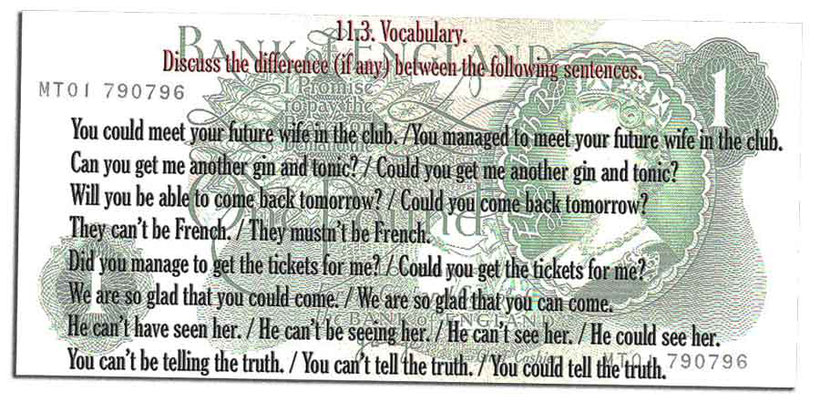
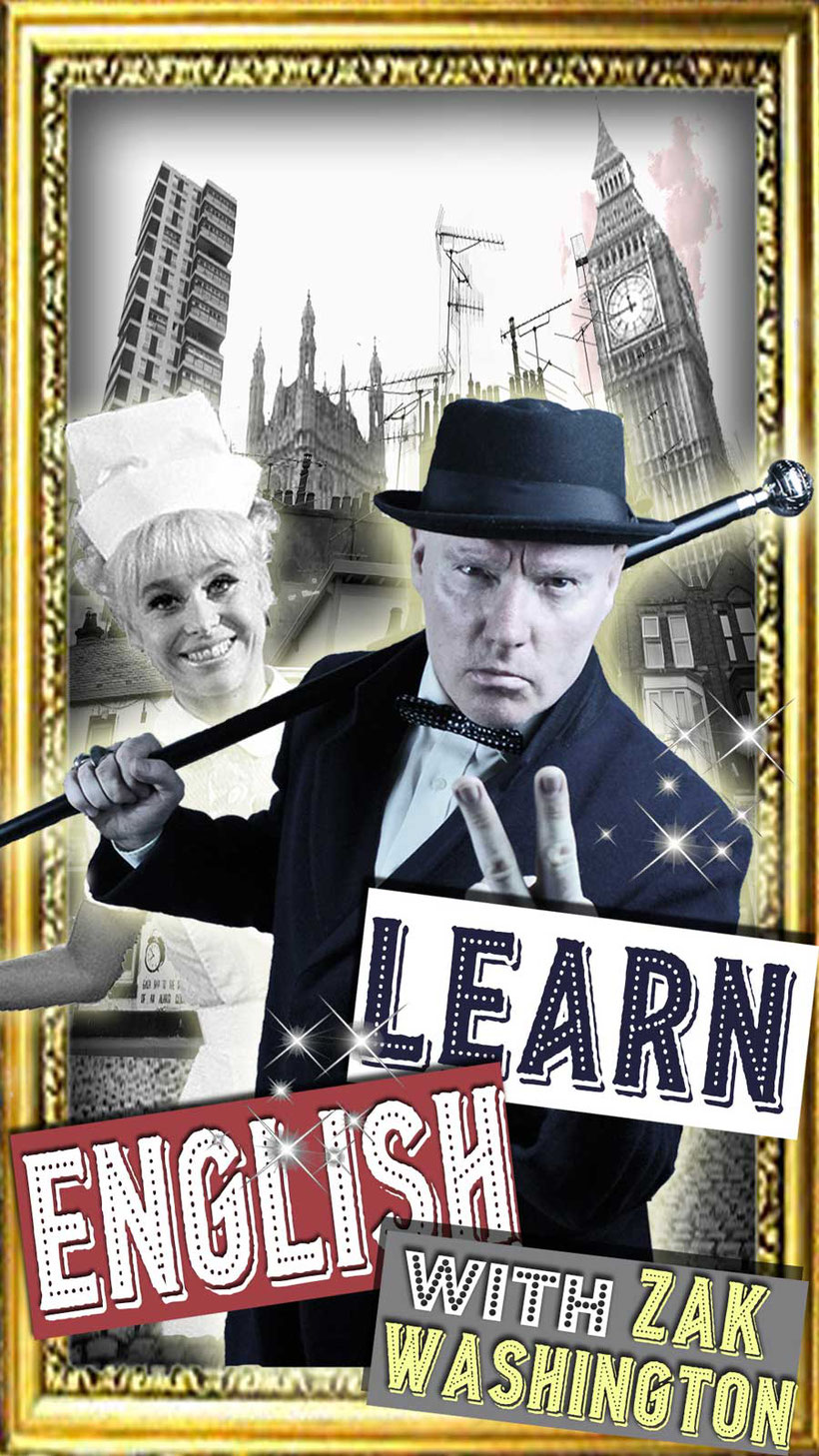

LISTENING EXERCISE
This is a LEARN ENGLISH WITH ZakWASHINGTON audio listening exercise for students of English.
CHAPTER 11 SONG 1
11.4 English grammar exercise. Difficult and Confusing Verbs
Now complete the following text in pairs, using the most appropriate verb from the list below.
CAN, COULD, MANAGE TO, BE ABLE TO, COULD HAVE.
You will need to conjugate some of the verbs in past, present and future tenses, and put some of them into the negative form.
ZAK WASHINGTON: Good evening to you students! We have seen some interesting aspects of British culture. Where are we going today? Well, actually, we are not going anywhere. We still 1................... (negative present perfect) to get out of the night-club. We are still here at the Royal Revue Bar. It’s ten past three in the morning and fifteen minutes after the show. What 2................... (deduction) have happened to our merry[1] band of foreigners? A good question indeed. In Soho anything 3................... happen! Where 4................... (ability, deduction) they be? Let’s have a look at each of them.
Ali first. He is the man who finds himself in the most delicate situation. He has been drunk for a long, long time. He 5................... (negative present perfect) walk straight for hours. He doesn’t realise what‘s happening. The other students have 6................... (present perfect) put alcohol into his drinks all night.
The students have told him that he 7................... (possibility) be suffering from jet lag. Diplomatic relations 8................... (possibility) be cut off. Ali is desperately in love with Lady Forbsworth, the stripper, who isn’t a real ‘lady’ at all. He is sure that he 9................... (future ability) marry her and 10................... (future) take her back to the The Free People’s Republic of Zangonia. He is so rich, he 11................... (past possibility) found anyone else he wanted, but he had to choose a stripper!
Anja is a little bit fed up. It 12................... (possibility) be because Ahmet 13................... (to succeed in) get drunk again, and has been declaring his love for her. Ahmet is a little fed up because he 14................... (negative, present perfect - to succeed in ) convince Anja to get fixed up with him. He 15................... (negative ability) pick her up, and 16................... (negative future ability) pick her up tomorrow, because she just isn’t his type.
Sophie 17................... (negative) enjoy herself and 18 ................... (possibility, past) had fun in London, if they had visited some ‘normal’ places. She ................... (negative) wait to get home so she ................... (ability, positive) see her friends. She 19................... (ability, negative) stand the men but ................... (negative, present perfect) stop them chasing her.
François 20 ................... (to succeed in, negative) drink as much but he 21 ................... (negative) be quiet and he’s 22................... (to succeed in) be very offensive to everyone. The entertainment 23 ................... start soon!

GIOVANNI: (Giving Ali a vodka and tonic in the Club.) Have another Traditional English Refreshment! Did you enjoy the show?
ALI: (Still drunk) It was marvellous. Do you know this charming English Lady Forbsworth yourself? (Hic!)
GIOVANNI: I did meet Lady Forbsworth briefly, earlier today in the Halston Palace.
ALI: Do you think that you could arrange for me to meet her? (Hic!)
GIOVANNI: You should talk to that gentleman over there. Mr. Chris Off. He is a good friend of Lady Forbsworth’s. He’s a very interesting guy. Hey! Chris! (Chris comes over.)
CHRIS OFF: Giovanni! What have you been up to? I thought you were off. They filled me in on the run-in that you had with the local police. I heard that you got fixed up with a girl..... a guy..... a person.. a........ Whatever! Cheer up! That friend of yours will show up soon. London is not so big. If he’s gone off somewhere, you’ll soon meet up again. 11.5. Students explain what Chris Off is talking about.
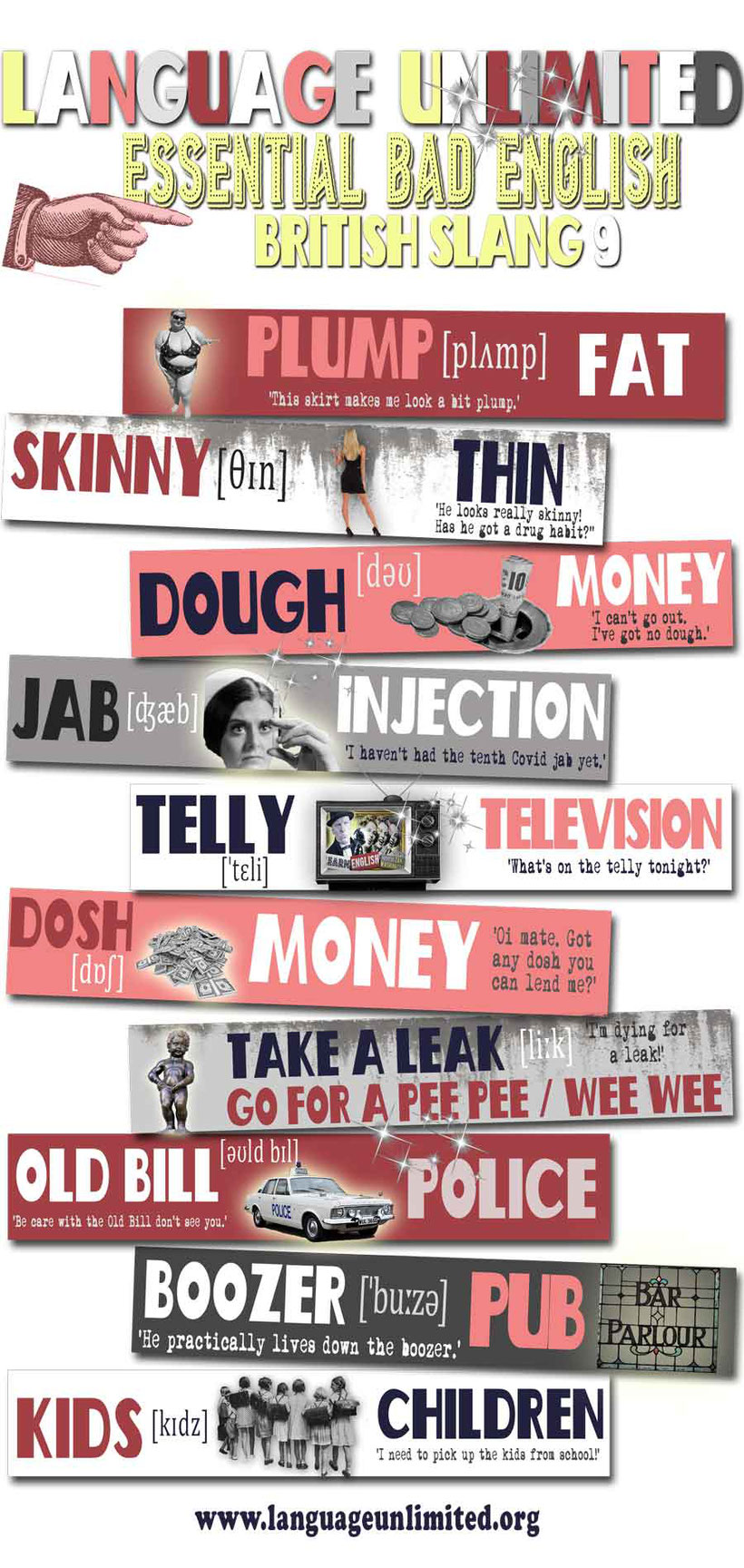
GIOVANNI: He’s not my boyfriend. He’s not my girlfriend. He’s not even a friend! And I haven’t lost him. He robbed me, and then he vanished[2]. He pick-pocketed[3] me, and then disappeared with my wallet[4].
CHRIS OFF: Get away! You are having me on. You must be fed up. That kind of thing gets you down. Someone ripped me off once. I was very shaken up, stressed out and it took me a few days to get over the shock. Have the police found out who did it yet? 11.6 Explain.
GIOVANNI: Not yet. I went to the police station, but there is no news yet.
CHRIS OFF: Did the police take down a statement?
ALI: What does he look like?
GLOSSARY
[1] Merry (SP: feliz, IT: contento) (adj.) a synonym of happy.
[2] To vanish (SP: desaparecer, IT: svanire) to disappear.
[3] To pickpocket (SP: robar, IT: rubare - borse, portafogli, etc.) to rob or steal money, watches or valuables from people in public places. Tourists are usually the victims.
[4] Wallet (SP: cartera, IT: portafoglio) (noun) a thing used by men to keep money, credit cards, ID cards or valuables. Women use a purse.
[5] Statement (SP: declaración, IT: dichiarazione) (noun) the official document that has to be made by the police after a crime has been reported.
CLASSROOM ACTIVITY LISTENING EXERCISE
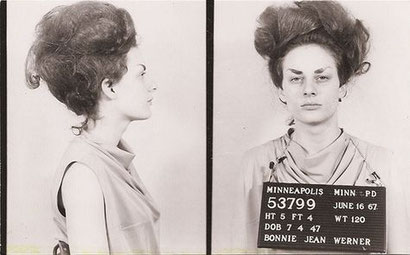
The student in the class whose name sounds most ridiculous when pronounced with an English accent, must read the text below. This is Giovanni’s description of his ‘lady friend’. The other students will draw the picture. They will help explain the adjectives that he describes to each other.
GIOVANNI: He’s tall, well-built (SP: fuerte, IT: muscolare) , and broad-shouldered (SP: ancho de hombros, IT: dalle spalle larghe) . He has dark shoulder length hair with a parting, and two plaits. On each of the plaits[1] is a ribbon[2]. His face is wide, with a deep forehead with wrinkles[3]. His eyebrows meet in the middle. His nose is thin and pointed, and quite feminine. He has high cheek bones, rosy cheeks, and wide well-formed lips. There is a shadow of a moustache above his upper lip, and a dimple on his chin[4]. His ears are small, but well formed. There is a mole[5] on his left cheek. He has a large Adam’s apple[6]. He usually wears a black dress. He has a beer gut[7]. His legs are thick and muscular. I think that he plays rugby. He has a tattoo on his right forearm, that says ‘Muther didn’t love me.’ I don’t think that he’s very good at spelling. His feet are flat.
Now compare pictures. Verdict: Pathetic. Never ever make jokes again about the pictures that your teacher draws on the board!

ALI: (Hic!) From the description he sounds just like that man over there!
GIOVANNI: I don’t believe it! That’s him. That’s Dave the pick-pocket. I’m going to call the police. Where is Desk Sergeant Reynolds’ phone number? (Taking out a mobile telephone.) Keep an eye on that thief (SP: ladrón, IT: ladro) . Watch and tell me what he does.
GIOVANNI: (On the telephone.) Hello? Desk Sergeant Reynolds? This is Giovanni Rossi.
ALI: The man next to Dave is taking out a mobile. He’s answering the phone.
GIOVANNI: (On the telephone.) Mr Reynolds? I’m phoning you from the Royal Revue Bar in Soho. I have managed to locate the thief who stole my wallet. Where are you? You sound very close.
ALI: He is standing six feet (2m) (SP: pies, IT: piedi) away from you!
DESK SERGEANT REYNOLDS: I can explain everything……….
GLOSSARY
[1] Plait (SP: trenza, IT: treccia) (noun) a way of dividing and tying hair into a pattern, common with women who have long hair.
[2] Ribbon (SP: cinta, IT: nastro) (noun) a strip of material, often coloured, that is used to tie up hair or as a decoration.
[3] Wrinkle (SP: arrugas, IT: rughe) (noun) line in the skin caused by age, or a fold in paper or other substances.
[4] Chin (SP: barbilla, IT: mento) (noun) the part of the face below the mouth and above the neck.
[5] Mole (SP: lunar, IT: neo) (noun) a small and usually permanent spot or mark on a person’s skin. Madonna has a famous one on her cheek.
[6] Adam’s apple (SP: nuez de Adán, IT: pomo d'Adamo) (noun) a part of the body. The lump that sticks out of the neck that moves up and down when a person swallows or talks.
[7] Beer gut (SP: barriga de taxista, IT: pancia della felicit´à) (noun) a gut is an informal way of saying stomach. A beer gut would be one of those fat stomachs that taxi drivers and football hooligans are famous for. Belly is another alternative that can also be used to describe the same part of an animal. A belly dance is the traditional dance of the Middle East. To have guts is an idiomatic way of saying ‘to be brave’, which is a little different to the idiom to have/not have the stomach which refers to being able to put up with an unpleasant activity that will make you feel nauseous.

11.8 GRAMMAR EXERCISE HOW TO CORRECT BAD ENGLISH
Look at the letter below, written by Ali. Although Ali has impressive English, he still makes some clumsy mistakes. Correct them.
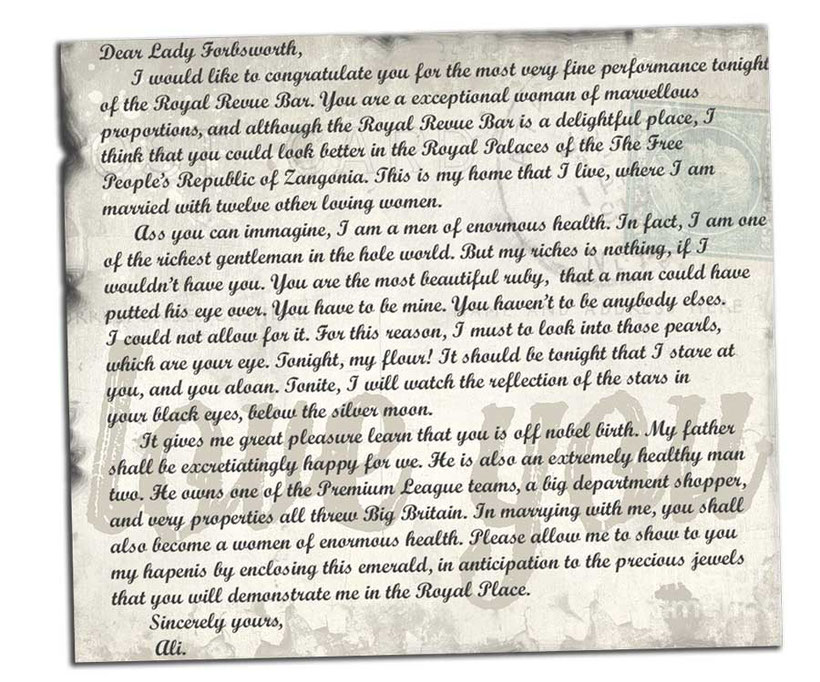
SPEAKING PRACTICE ROLE-PLAY

Student A.
You are the beautiful Soho dancer ‘Lady Forbsworth’. You earn a living taking your clothes off in a London club. You dress as a Victorian aristocrat. You have blue hair, and various piercings in interesting places. You are a lovely, down-to-earth (SP: con los pies en la tierra , IT: i piedi per terra) decent (SP: buena, IT: decente) girl, from a poor family. One night after a show, you meet a good looking (SP: guapo, IT: bel) , but very drunk foreign gentleman. He is also one of the richest people in the world! You find him extremely attractive. The problem is that he already has twelve secret wives (SP: esposas, IT: mogli) , and is supposed to be marrying the Queen’s niece. He is not a prospective[1] husband for you! You are too liberated, too modern, and too English for this gentleman. But he does have something that you could use. This man is so rich, that he could give you a million pounds without even noticing (SP: sin siquiera notarlo, IT: senza nemmeno accorgersene) ! Get him to give you some of his money, by any means that you can, so that you won’t have to continue dancing for a living. Don’t let him seduce (SP: seducir, IT: sedurre) you, marry you, or see your piercings.
Student B.
You are Ali Fred. Your father is Britain’s most important businessman, but he is getting old and tired, and is thinking of retiring (SP: jubilarse, IT: andare in pensione) . You are the heir[2] to his kingdom. You have travelled[3] the world, dined (SP: cenar, IT: cenare) with the most important people in the world, and have more money, power and influence than almost anyone on the planet. Plus you are charming (SP: encantador, IT: incantevole) , noble, poetic and extremely good-looking (SP: guapo, IT: bello) ! Oh! One other thing. You are completely drunk (SP: borracho, IT: ubriaco), thanks to that good-for-nothing English teacher Zak Washington and his students. In a Soho nightclub you have seen the love of your life. You have fallen in love with the adorable Lady Forbsworth. Since the moment you first saw her, you have known that this visible personification of absolute perfection must be yours! Take that gorgeous (SP: preciosa, IT: bellissima ) flower of the desert and seduce (SP: seducir, IT: sedurre) her! Accept nothing less than her total devotion and her hand in marriage. Now use that influence of yours, your charm (SP: encantos, IT: fascino) , your good looks, and your money to make her yours!
GLOSSARY
[1] Prospective (adj.) a synonym of possible.
[2] Heir/heiress (SP: heredero, IT: erede) (noun) a person who will legally get (to inherit) money, property, estate or title, from a parent who dies. ‘Did you know that Dave is heir to an enormous fortune?’ ‘How much will he inherit?’ ‘A million pounds!’
[3] To travel (SP: viajar, IT: viaggare) is, of course, a verb but not normally a noun unless it is in a literary context e.g. Gulliver’s Travels (a book by Jonathan Swift), or a long, extensive tour. In everyday English, we would refer to travelling by saying a journey, or a trip (SP: un viaje, IT: un viaggio) , the difference being that a trip talks of the whole process of going, doing what you do, and then returning. A journey (SP: un viaje, IT: un viaggio) is used more to refer to the journey itself, although often there is little difference. Compare the following: ‘The journey was rotten. The fat man who sat next to me snored all the time.’ ‘The trip was great, we managed to do everything that we had intended.’ To journey is an archaic verb not used now. To trip exists but it has a completely different meaning; ‘to fall over an object’; ‘He tripped over the step and spilt all the drinks.’ To voyage only refers to a long journey made at sea.
11.9 GRAMMAR EXERCISE MAKING SENSE OF ENEN WORSE ENGLISH
Our friend Mr. Ticket Inspector has ALSO fallen in love with ‘Lady Forbsworth’!! Unfortunately he doesn’t have such good linguistic abilities as Ali, and has difficulty expressing (SP: expresarsi, IT: exprimirse) himself. Get into pairs and correct his mistakes.
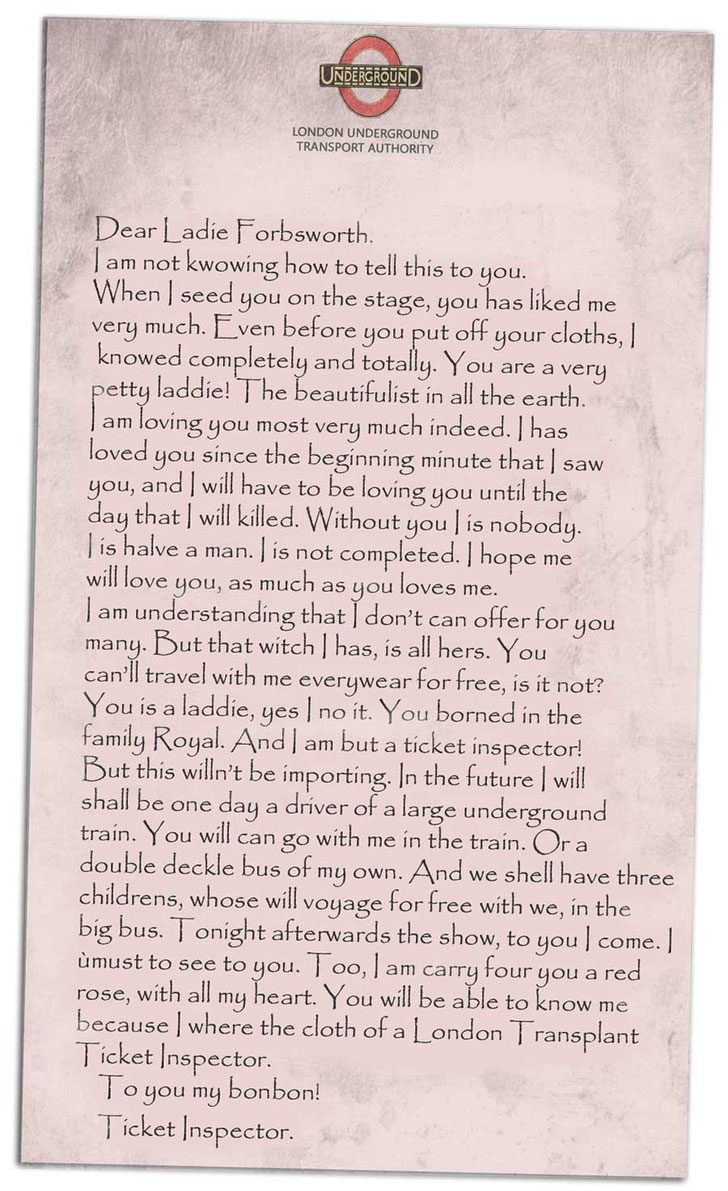

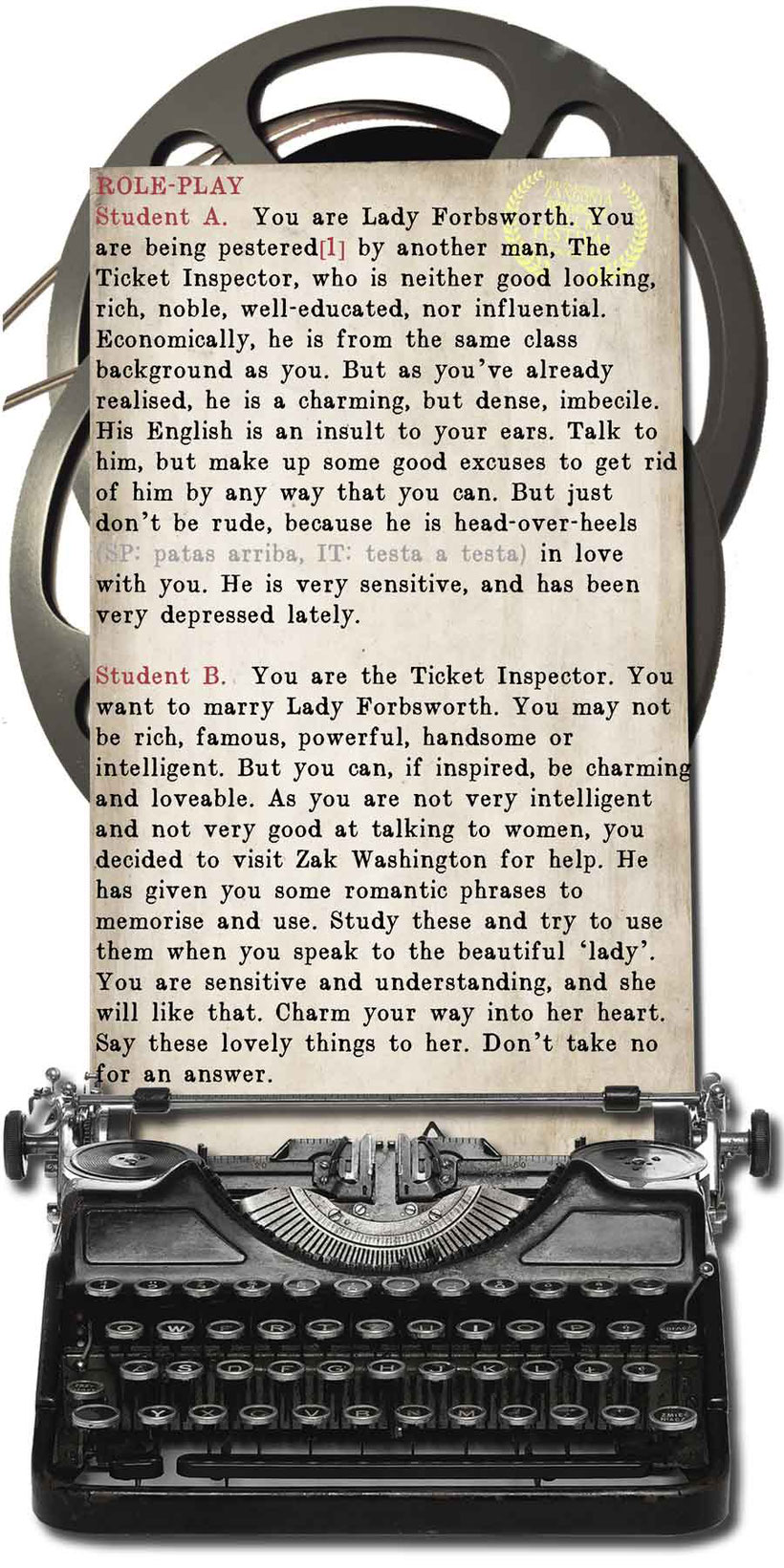
[1] To pester to annoy, to bother, or to irritate someone, by doing or saying the same thing continually. ‘Dad, can I have an ice cream?’ ‘Stop pestering me! You’ve asked me ten times already. I’ve said no, and I won’t change my mind!’

Some very romantic phrases in English:
‘Lady Forbsworth, each word from you is like a kiss. If only you would write me an encyclopaedia!’
‘Why don’t you let me steal a kiss from you! After all, you have stolen my whole heart!’
‘You are like a beautiful candle. You guide me through the dark ways of this world with your warmth and light.’
‘A man cannot love and be wise… and I, Lady Forbsworth, am the world’s greatest fool!’
‘My love for you is the purest, cleanest sentiment I have, because I have bathed it in my tears a thousand times!’
‘When I look into those precious eyes of yours, they speak to me of eternal love, in spite of (SP: a pesar de, IT: nonostante) the fact that your words say something different. Listen to your heart my darling! I can listen to mine no more, as now it belongs completely to you!
11.9 ENGLISH LANGUAGE WRITING PRACTICE
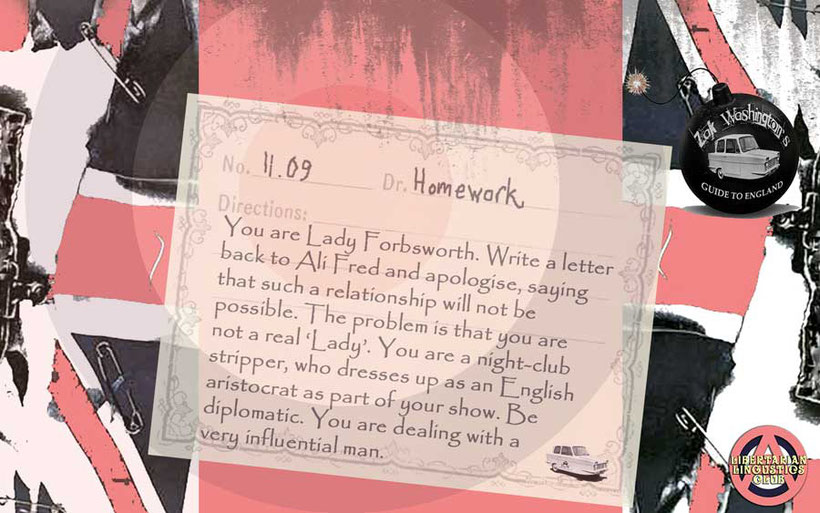
Homework! You are Lady Forbsworth. Write a letter back to Ali Fred and apologise (SP: pedir disculpas, IT: scusarti), saying that such a relationship will not be possible. The problem is that you are not a real ‘Lady’. You are a nightclub dancer, who dresses up as an English aristocrat as part of your show. Be diplomatic. You are dealing with a very influential man
11.10 VOCABULARY HOW TO DESCRIBE PHYSICAL APPEARANCE
Get into pairs. Look at the list of nouns and adjectives below to describe appearance. Add them to the appropriate columns. You will need a dictionary as some are quite difficult. Don’t worry if you don’t understand them all.
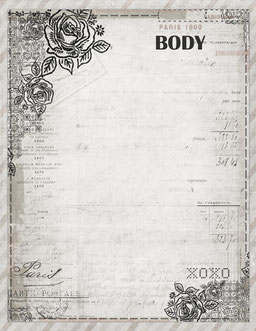


ADJECTIVES to describe physical appearance in English. WELL-BUILT, CURLY, BALD, ROSY-CHEEKED, STOUT, STRAIGHT, STOCKY, FRECKLED, PLUMP, SKINNY, RECEDING, TANNED, ATHLETIC, BROAD-SHOULDERED, FLAT, WAIF-LIKE, POT-BELLIED, GAUNT, FLUSHED, FAT, THIN, SHAVEN, MUSCULAR, FRIZZY, POUTING, SHOULDER LENGTH.
NOUNS to describe physical appearance in English. PLAITS, CALVES, RUBBER LIPS, NOSTRILS, BEARD, BOTTOM, WIG, WAIST, FOREHEAD, TEMPLE, THUMB, PONY TAIL, KNEES, FRINGE, DIMPLE, BREASTS, QUIFF, STUBBLE, PARTING, EYE-BROW, ACNE, ELBOW, ANKLE, CURLS, WRINKLES, ADAMS APPLE, BEER GUT, BALD PATCH, THIGHS. Add any more that you might be able to think of.
HAIR TODAY, GONE TOMORROW ENGLISH ADJECTIVES GAME
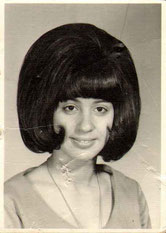
Get into pairs. You are going to describe famous people using only adjectives that describe appearance, like those that we have learnt above. You need to choose (SP: elegir, IT: scegliere) somebody who is known by the whole group.
A television celebrity, a model, a soap opera star, a cartoon character, a singer etc.
The other teams will try to guess (SP: adivinar, IT: indovinare) the personality. You may ask questions, but they can only be questions that use physical appearance adjectives. No hands. Speech only!
Five points for each team for guessing the personality. Extra points will be awarded for imaginative adjective use.







